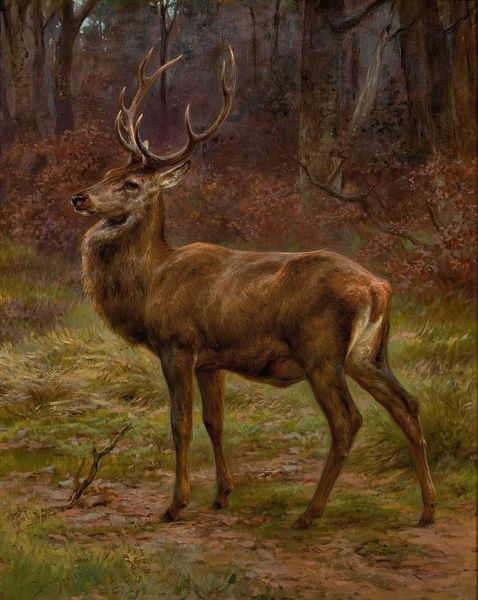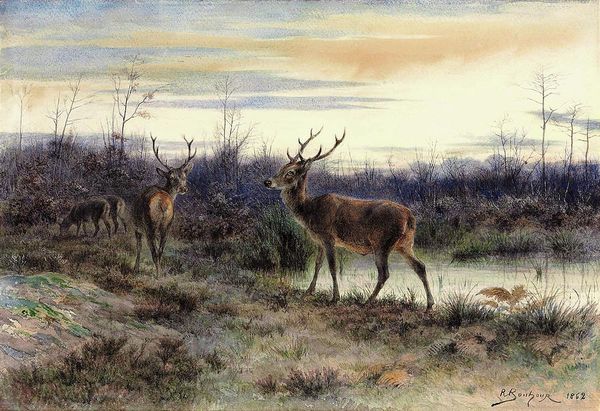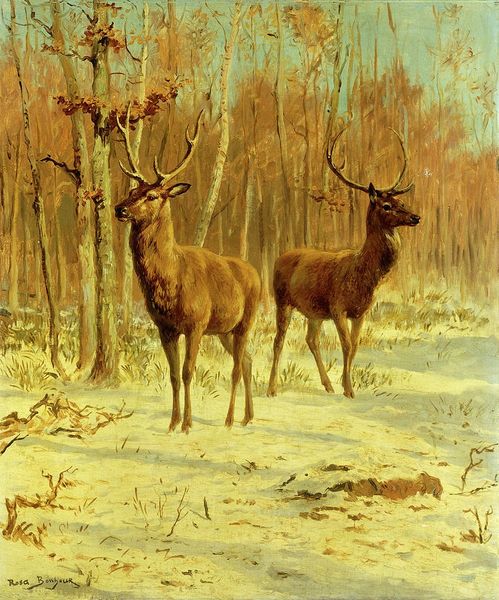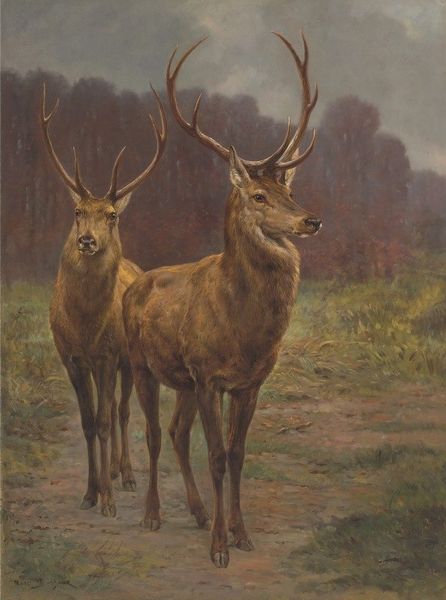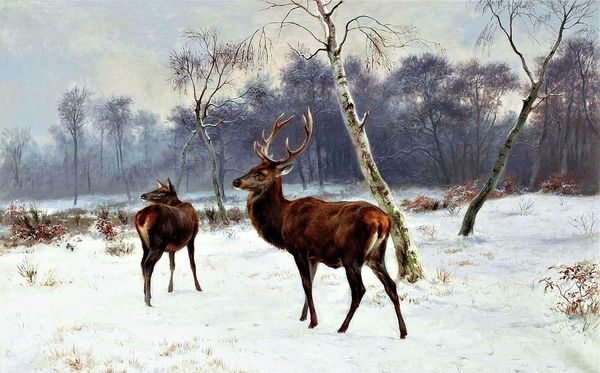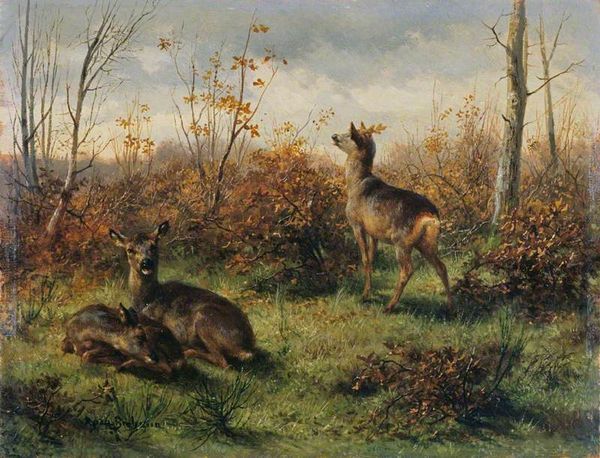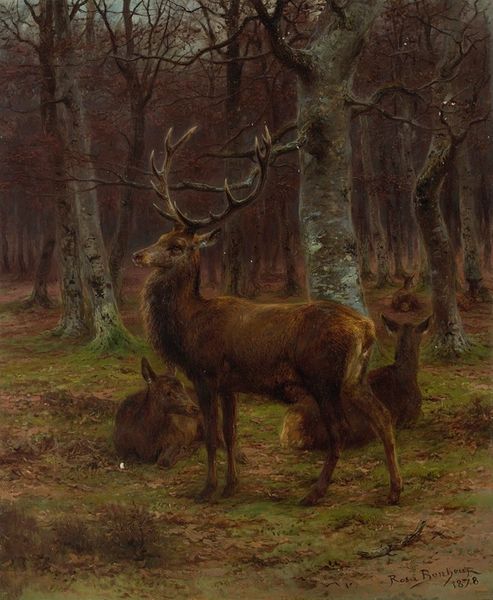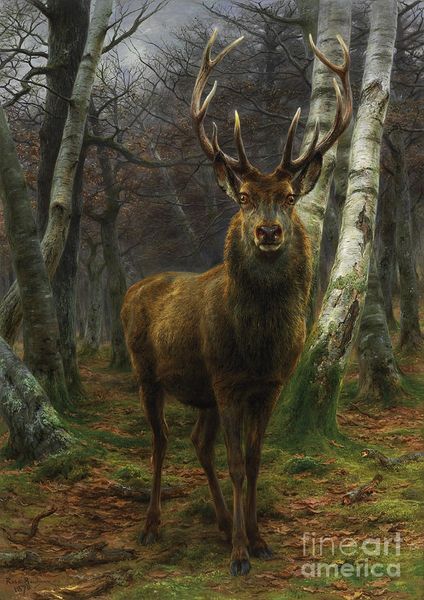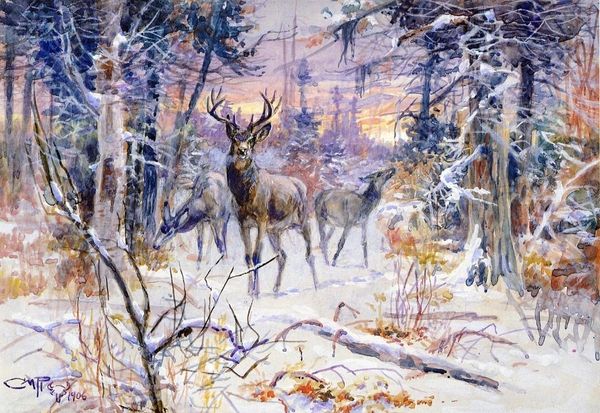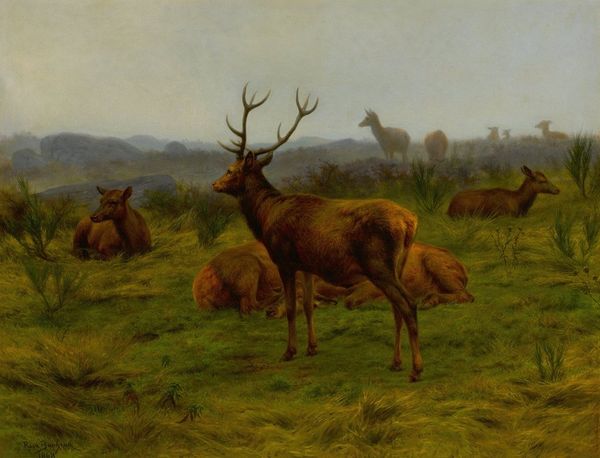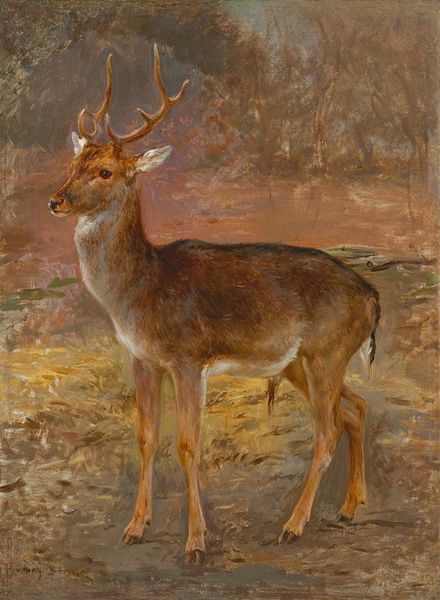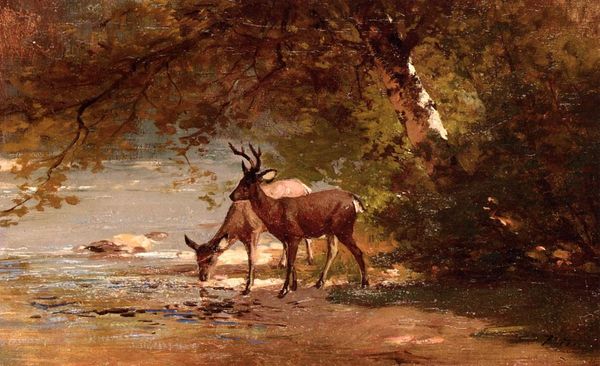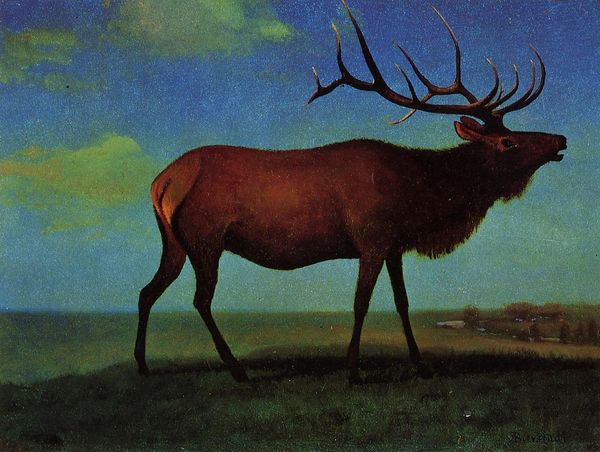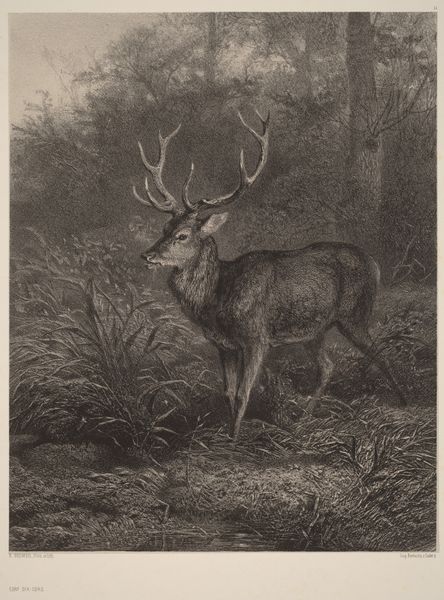
Copyright: Public domain
Editor: Rosa Bonheur’s oil painting, "The Stag", created in 1875, presents such a noble animal within a muted, earthy landscape. The detail in the stag itself really catches my eye. How should we interpret this piece through a broader lens? Curator: Well, let's consider the social context. In the mid-19th century, there was growing industrialization. Artists like Bonheur, painting pastoral scenes with such fidelity, romanticized nature, implicitly critiquing urban life and, simultaneously, demonstrating human power over it. How might this play into the tradition of landscape art, do you think? Editor: I see. Perhaps it reinforces landscape painting as a culturally sanctioned space to express idealised visions of the world in contrast to, or perhaps even a form of escapism from, industrial realities? Curator: Exactly. Consider also that Bonheur achieved renown in a male-dominated art world, particularly with animal paintings that often referenced virility and strength, typically considered masculine traits. How does this potentially subvert expectations in the art world at the time? Editor: Right! By mastering this genre, Bonheur challenged societal norms. Displaying it prominently in exhibitions was a bold statement about her artistic capabilities. The public display of these works allowed a different perception of women's abilities and tastes within the dominant male-dominated sphere of art. Curator: Precisely. Therefore the “masculine” subject matter by a female hand can then read as subversive commentary, furthering dialogues concerning both gender and artistic skill. It gives this work another layer of potential meaning when you consider the historical role of gender. Fascinating! Anything else to consider before we move on? Editor: Thinking about the art world that Bonheur inhabited has totally transformed my interpretation of the piece; this is an idea of 'art with context' that has provided insights way beyond the simple image. Curator: Agreed, I think we've effectively peeled back a lot of those layers and shed new light on this great work!
Comments
No comments
Be the first to comment and join the conversation on the ultimate creative platform.
